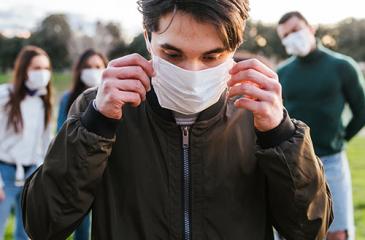Non-Suicidal Self-Injury in the Context of COVID-19: The Importance of Psychosocial Factors for Female Adolescents
University researchers recently published their findings on adolescent mental health in the COVID-19 pandemic. They reported on results from a longitudinal study examining predictors of engaging in non-suicidal self-injury (NSSI) in adolescents. Their findings provide preliminary evidence that perceptions of stress and external coping resources, including support from family members, are relevant in the face of the unprecedented stressors brought on by the COVID-19 pandemic. "The pandemic is inducing similar stressors on a global scale, allowing for us to assess NSSI under unique stress conditions," said Kathryn Cullen, MD, associate professor of psychiatry and behavioral sciences. "Our findings during such conditions may elucidate possible avenues of treatment and new research. With these advances, we can hope to mitigate the use of NSSI and arm adolescents with more adaptive strategies for coping with distress and to lessen the risk for continued suffering and suicide risk, and improve mental health prognosis." This project was supported by the UMN Campus Public Health Officer's CO:VID (Collaborative Outcomes: Visionary Innovation & Discovery) grants program.



